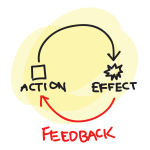 The illusory superiority bias is one of the more stable features of workplace behaviour. There’s no doubt a little bit of it in all of us, and sees our opinion of our abilities and achievements somewhat inflated beyond the reality.
The illusory superiority bias is one of the more stable features of workplace behaviour. There’s no doubt a little bit of it in all of us, and sees our opinion of our abilities and achievements somewhat inflated beyond the reality.
The preponderance of this bias has prompted significant levels of study and evaluation into the bias. What most of these studies have in common however is that they tend to focus on a solitary area of performance, and do so in isolation. Few have examined how accurate our self perception is across a multitude of disciplines.
A new study published recently by Ethan Zell and Zlatan Krizan sets out to change that. They wanted to explore whether our self deception is consistent across disciplines, or whether certain tasks prompted varying degrees of accuracy when self-evaluating our performance.
The researchers found there was but a moderate relationship between actual performance and our perceptions. The interesting thing, of course, was whether this changed when assessing various skills. People generally viewed their language competence with a high degree of accuracy, and had moderately solid perceptions about their academic and vocational skills. But they were least accurate in assessing their non-verbal skills.
The study suggests that this is largely because of the amount of feedback we receive in each of these areas. When we talk for instance, it’s hard to hide whether someone understands us or not. In other areas, such as with nonverbal skills, the level of feedback is much scarcer, hence our perceptions are worse.
The research also discovered that the difference between perception and reality was smallest when the feedback was specific and objective. Self-insight was also greater when people judged their performance on low- as compared to high-complexity tasks, and when they had more experience with the task they were evaluating.
So, the message is clear. If you want people to better appreciate and understand their own talents (and limitations), you need to give them regular, specific and objective feedback.